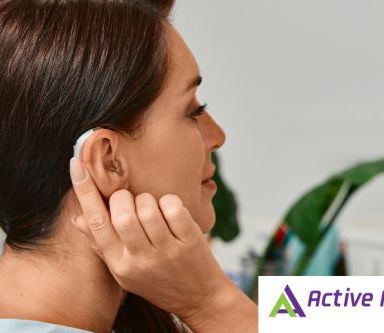
Living with hearing loss can be challenging, but advances in hearing aid technology have made it possible to improve the quality of life for millions of people. It’s crucial to ensure that your hearing aid fits correctly, so that it can work as well as it should. As your hearing aids Omaha expert, we wanted to provide you with some of the signs that indicate your hearing aid isn’t fit properly, as well as inform you why a proper fit matters and give some information on over-the-counter hearing aids.
Signs your hearing aid doesn't fit
If your hearing aid feels uncomfortable, this is a telltale sign that it doesn't fit quite right. A poorly-fitting hearing aid can cause discomfort, soreness or even pain in your ear. It may rub against the skin or add unnecessary pressure, which leads to discomfort during extended use. Any discomfort or pain should be dealt with immediately. Your hearing aids Omaha professional can make adjustments for you if needed.
If you’re experiencing any feedback or whistling sounds, it might be an indication of a poor fit. This happens when your device does not have a proper seal within the ear canal, which causes sound to leak. Inconsistent sound quality also pertains to an improper fit; some sounds may come across as too loud or too soft, resulting in difficulties following conversations or distinguishing sounds in noisy environments.
Why a good fit is necessary
A good hearing aid fit ensures sound clarity, long-term wearability and prevention of further hearing damage. A well-fitted hearing aid ensures that sound reaches your eardrum effectively, allowing for better sound clarity and comprehension. It enhances your ability to hear and understand conversations, music and other sounds in various environments. Your hearing aid should be able to capture and amplify sound accurately. When the fit is snug, any background noise is minimized so you can hear and follow conversations better.
A properly fitting hearing aid also minimizes discomfort and pain, which is especially important for those who rely on hearing aids for extended periods of time. A hearing aid that doesn’t fit right can cause damage to your ear canal or eardrum due to prolonged pressure and friction. You want a proper fit to reduce any risk of these complications and to maintain your hearing health.
So, what about over-the-counter hearing aids?
Over-the-counter hearing aids (OTC) have gained popularity recently due to their accessibility and affordability. However, without professional guidance, achieving a proper fit can be challenging. OTC hearing aids come with a slight lack of customization to an individual’s hearing needs. While OTC devices may provide a general fit, everyone's ear anatomy and communication needs are unique. Audiologists and other hearing professionals play a crucial role in ensuring an individualized fitting process, taking into account factors like ear canal shape and degree of hearing loss.
To overcome these challenges, some OTC hearing aids offer remote programming or tele-audiology services to fine-tune the device based on the user's feedback. Nonetheless, for individuals with complex hearing loss or specific needs, consulting with a hearing specialist remains the best option to achieve a personalized fit and optimal hearing experience.
Talk to us about hearing aids Omaha
We’re here to help! Hearing aids do have an adjustment period, but should never hurt. If you or a loved one recently started using hearing aids and you’ve tried all you can to relieve any discomfort, it might be time to visit a hearing specialist for troubleshooting or adjusting. A well-fitted hearing aid allows you to enjoy a world of better hearing. Contact us today for more information!






Comments